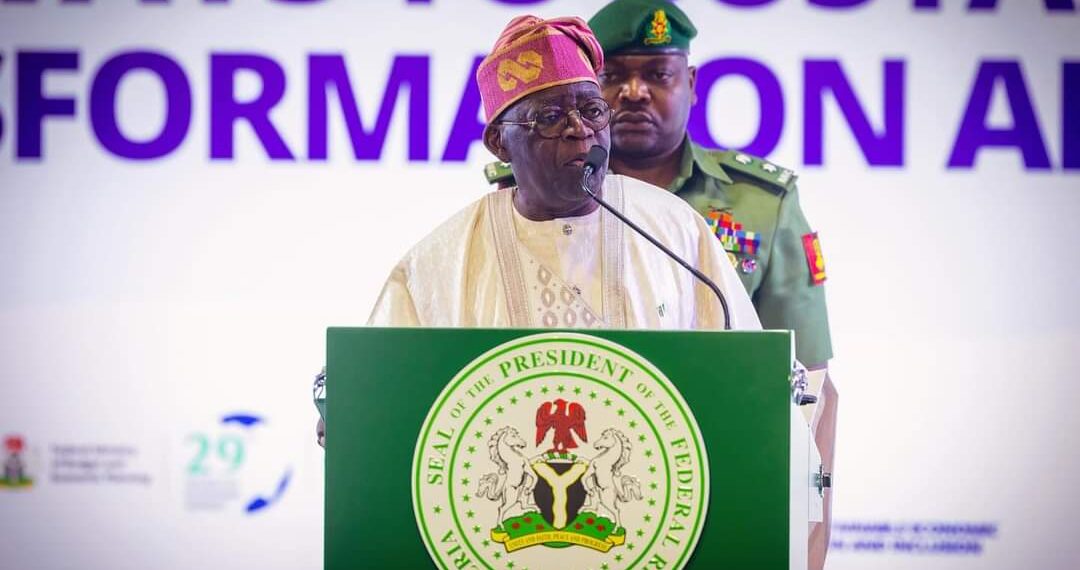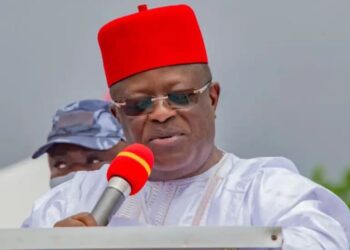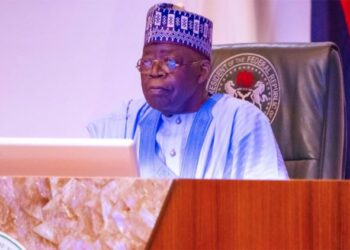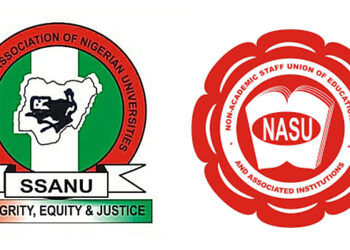President Bola Ahmed Tinubu has said that his administration will soon send an executive bill to the National Assembly to enshrine what has been agreed upon as a new national minimum wage as part of “our law” for the next five years or less.
In his national broadcast today on the 25th anniversary of unbroken democracy in Nigeria, the president said he understood the economic difficulties the country faced as a nation, but asked Nigerians to commit to the fulfilment of the realisation of “our economic democracy.”
Alhaji Bukar Goni Aji-led 37-member Tripartite Committee on National Minimum Wage on Monday submitted its report after about five months of sittings.
Representatives of the federal government and the private sector in the tripartite committee for the negotiation of new minimum wage proposed N62, 000, while the organised labour scaled down from N494,000 to N250,000.
With the submission of the report, the president is expected to make a decision and send an executive bill to the National Assembly to pass a new minimum wage bill, which the president will then sign into law.
While speaking today, President Tinubu said the economic reforms initiated were necessary repairs required to fix the economy over the long run so that everyone had access to economic opportunity, fair play and compensation for their endeavour and labour.
Tinubu said, “Our economy has been in desperate need of reform for decades. It has been unbalanced because it was built on the flawed foundation of over-reliance on revenues from the exploitation of oil.
“The reforms we have initiated are intended to create a stronger, better foundation for future growth. There is no doubt the reforms have occasioned hardship, yet they are necessary repairs required to fix the economy over the long-run so that everyone has access to economic opportunity, fair play and compensation for his endeavour and labour. As we continue to reform the economy, I shall always listen to the people and will never turn my back on you.
“In this spirit, we have negotiated in good faith and with open arms with organised labour on a new national minimum wage. We shall soon send an executive bill to the National Assembly to enshrine what has been agreed upon as part of our law for the next five years or less.
“In the face of labour’s call for a national strike, we did not seek to oppress or crack down on the workers as a dictatorial government would have done. We chose the path of cooperation over conflict. No one was arrested or threatened. Instead, the labour leadership was invited to break bread and negotiate towards a good-faith resolution.
“Reasoned discussion and principled compromise are hallmarks of democracy. These themes shall continue to animate my policies and interaction with the constituent parts of our political economy.”
President Tinubu pledged to protect the country’s democracy at all cost, adding that he would also do his utmost best to “protect your rights, freedoms and liberties as citizens of Nigeria.”
The president reminded Nigerians that no matter how complicated democracy was: “It is the best form of governance in the long run,” adding that, “We must also be aware that there are those among us who will try to exploit current challenges to undermine, if not destroy, this democracy for which so much has already been given.”
Tinubu, who went down memory lane, said during the struggle for democracy, the country lost great heroes and heroines.
He said the winner of the June 12, 1993, presidential election, Chief MKO Abiola, his wife, Kudirat, General Shehu Musa Yar’Adua and Pa Alfred Rewane, among others, sacrificed their lives, stressing that they surrendered their futures so that our nation might have a better one.
The president said what democracy demanded “is that we do not resolve differences through force and repression. But we make allowance for the legitimacy of views that differ from our own.”
A former Vice President, Atiku Abubakar, has paid glowing tributes to late Basorun MKO Abiola, his late wife, Alhaja Kudirat Abiola, late Shehu Yar’Adua, late Alfred Rewane, among others, for their efforts towards the entrenchment of democracy in Nigeria.
Atiku, in his Democracy Day message to Nigerians, said the secondary purpose of declaring every June 12 as Democracy Day in Nigeria was to commemorate the history of “our long journey of becoming a stable democratic country.”
The PDP presidential candidate in the last elections, who noted that, “There’s no substitute to democracy as a form of government,” blamed the opposition politicians for lack of unity to rescue the country from the ruling party.
He said, “The ruling All Progressives Congress is to blame for bringing forth this dawn of gloom.
“But the opposition political parties are even guiltier than the ruling party for the seeming lack of capacity to come together and galvanise a coalition that will retire the ruling party and articulate a plan of good governance that will earn the conviction of Nigerians.
“Today, the failings of the opposition parties to uphold the functionality of their existence is the major threat to our democracy. The earlier they realise that the fortunes of Nigeria lies in their forging a coalition, the better it will be for our country and the people.”












